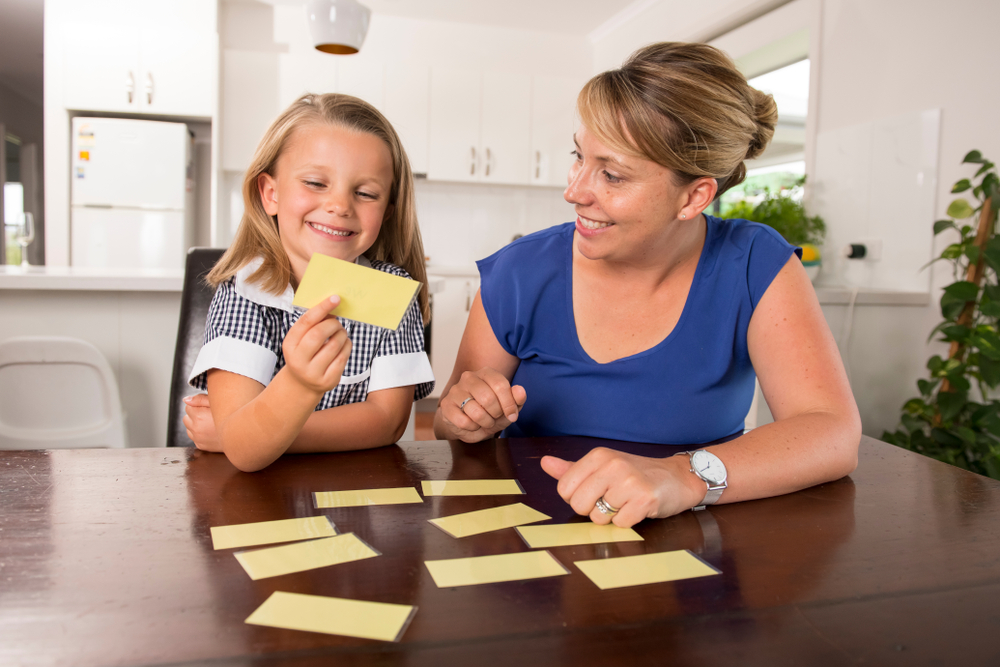
Children in kindergarten may be introduced to the basics of reading. Lists of sight words, phonics exercises and learning the basics of comprehension might be part of the reading curriculum. Children may use worksheets in class to review different literacy concepts and gain mastery.
How can parents help kindergartners at home, though, without treating books like homework? Parents wondering how to help kindergartner read for fun can use different activities, games and reading exercises to help them discover books and stories. The trick to make reading fun for kindergartners is all about expanding and exploring the reading journey. Here are a few ideas:
Let kindergartners pick out their books each day
- Use reading rewards
- Read everywhere
- Play sight word games
- Talk about stories
- Explore the library
- Explore sounds through songs and poetry
- Use reading apps
Why Parents Should Let Kindergartners Choose their Books
At school, children’s book selections might be based on their reading level. At home, parents might be a bit more relaxed. Let children choose their own books from their bookshelf to give children power over their reading experience and enjoy their journey. While some books might be beyond their reading level, parents can read it to them.
Hearing books that are more difficult can introduce children to new vocabulary. However, when parents are reading a more difficult book to their child, they should ask their child questions and talk about the story, too.
What if children want to read the same book over and over? While repetition could seem exhausting to parents, children might just love that story. Re-reading it can help them discover new details or master more certain words.
When children want to keep reading the same book, let them. However, parents can tell children that they also have to pick one new book after they read a favorite book. Some old friends are simply comforting.
Use Reading Rewards
Reading is fun. Some children, though, might have difficulty with reading and might not want to read regularly. Parents can set up a reading rewards system at home to help motivate less enthusiastic readers.
Children can make a reading chart and place a sticker for each book they read. The chart also could mark reading minutes; parents can use a system that works best for their child. With a rewards program, parents will need to indicate at what levels the child receives a reward.
What will parents use for rewards? Parents can offer extra screen time or maybe small prizes. Privileges could be motivating for some children while others would prefer tangible rewards like a fun eraser, bookmark, etc.
Read Everywhere
Reading isn’t just about books and stories. Encourage children to read different materials and to try to read everywhere. What cereal are they looking at in the store? Can they read the name? Ask them what a sign says above a door.
Parents also can let children read beyond books and stories. Magazines and comic books help with reading, too. Some children may prefer to read comic books. However, not all comics are designed for younger children.

Play Sight Word Games
Kindergarteners will begin to memorize a list of sight words. These are words they will need to recognize on sight. Parents can help children memorize these words using fun games.
Play sight word matches together. Parents can make two cards of each sight word. Take turns flipping over cards and making matches. Children should say the word when they flip over the card.
Simple flashcards also help children master sight words. Play with flashcards every night until children don’t stumble on any words.
Parents also can create Sight Word Go Fish. Make four cards of each sight word. Play according to the standard rules of Go Fish, but ask for sight words.
Talk About Stories
When reading together, parents can talk to children about the story or book. Ask children questions about the character or what they think will happen next. Parents can ask the ‘w/h’ questions: who, what, where, when, why and how.
Don’t turn story time into a quiz, though. Keep the conversation fun and light. Encourage children to ask questions, too. Ask them if they liked the story. Why or why not? Explain to children that they might not like every book they read and that’s ok.

Explore the Library
The local library is an amazing resource filled with books, magazines, audio books and even events. Take children to the library and let them explore the children’s section and check out a few new books.
Ask about events like story time or other activities for children. Consider bringing children to the library to participate in events that explore reading beyond books—for example, some story time events offer crafts and other fun activities.
Children also can explore audiobooks or magazines, too. Teach children about library etiquette, how to use their quiet voices and put books back where they were found. Parents also can help kindergarteners learn how books are organized in the library.
Explore Sounds through Songs and Poetry
In kindergarten, children are learning to decode words and how sounds blend together. There are many tools to help children identify letter sounds and sound blends. Sing songs or watch fun kid-themed music videos on YouTube.
Reading poetry also can help children understand rhyming and cadence, too. There are many poets who write for a younger audience; some of these poems are silly and just fun. Children also can make up their own poems.

Use Reading Apps
Apps are another great resource for parents to use at home to help kindergarteners read. When searching for apps via Google Play or the App Store, though, parents should be specific in their hunt. For example, searching just for reading apps will produce extensive results.
Instead, parents can search for specific reading activities or skills. For children who need to practice their sight words, parents can search for sight word games or sight word activities. Some apps also can help children with letters and sounds, and there are even apps for other reading needs, too.
Some apps might be free, and even apps that come with a price are fairly inexpensive. However, many of these apps are games. Not all of them are designed to guide the reading journey.
Parents who need a lesson-based reading app can use Readability. The app is designed for children in preschool through fifth grade. With Readability, children read stories aloud. The app includes a built-in AI tutor that guides lessons and provides help when children stumble; the AI tutor recognizes each child’s voice.
At the end of each story, the tutor also asks questions about what the child read to gauge their understanding. If they don’t answer a question correctly, the tutor will show them the text in the story that provides a key to the answer. The tutor also reads this section aloud. Children then have another chance to answer the question.
Readability is leveled to each child’s ability. If parents don’t know their child’s reading level, the program will discover it. Children only advance to the next level when they are ready.
Apps like Readability can help parents provide a fun and enriching resource to guide their child’s reading journey at home. Readability also encourages children to listen to their favorite stories with a feature called Storytime that reads to children!
Not every program is a fit for every child. Parents who are interested in exploring Readability with their kindergartener can sign up for a free seven-day trial period to gain access to all the program’s features.

 Español
Español